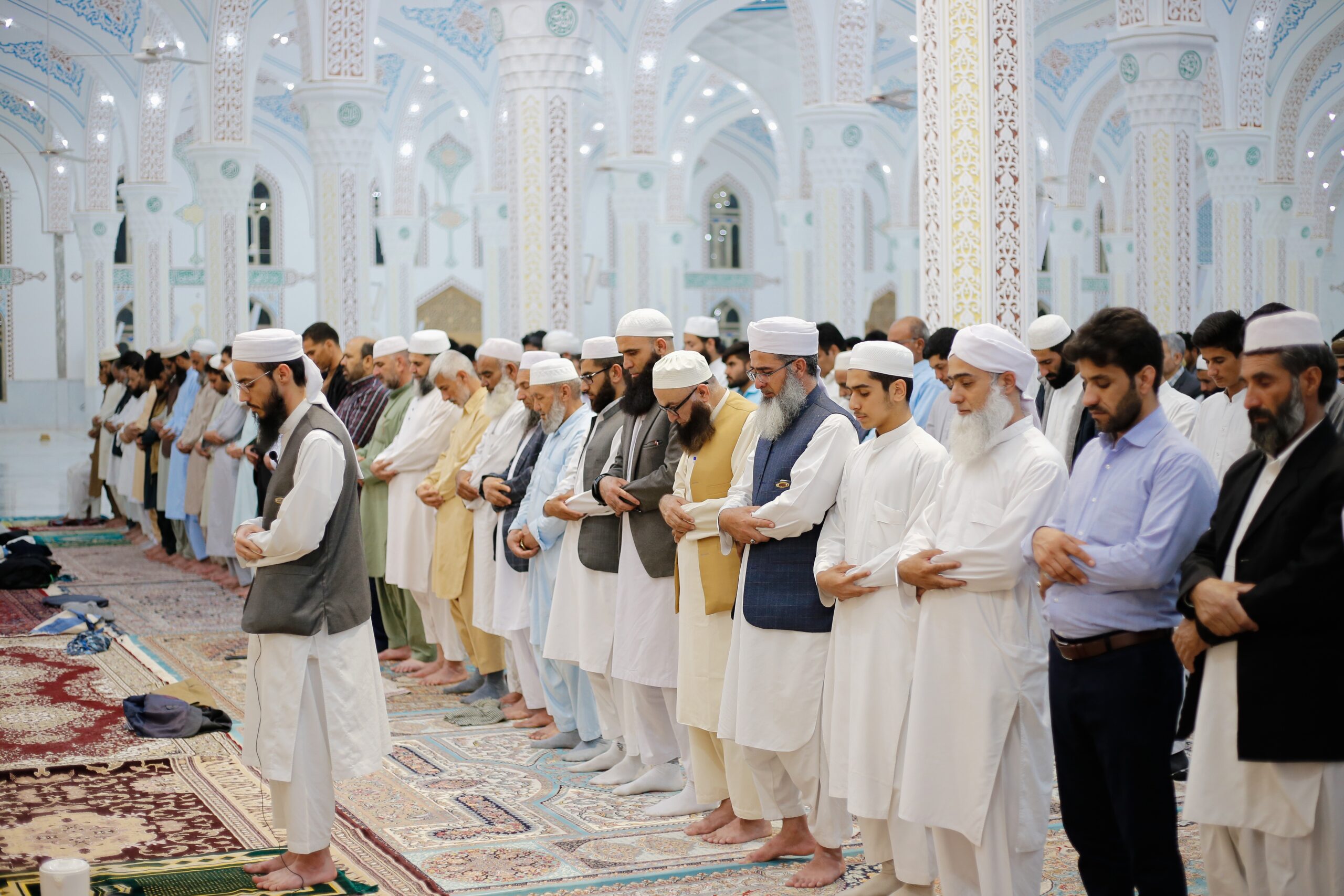Introduction:
In Islam, Salah (also called prayer) is one of the most fundamental acts of worship. It is considered the second pillar of Islam and holds immense spiritual, physical, and social significance. Muslims are required to perform Salah five times a day, each at specific times. This act is not just a ritual but a deep connection between a believer and Allah (God). In this article, we will explore the importance of daily prayers in Islam, their benefits, and the spiritual rewards they bring.
The Five Daily Prayers in Islam
Muslims are required to perform five prayers every day. These prayers include:
- Fajr: Performed at dawn before sunrise.
- Dhuhr: Performed after midday.
- Asr: Performed in the late afternoon.
- Maghrib: Performed just after sunset.
- Isha: Performed at night.
Each prayer consists of specific movements, recitations, and supplications. The times of these prayers are evenly spaced throughout the day, ensuring that a Muslim remembers Allah regularly and remains mindful of their spiritual duties.

Why is Salah Important in Islam?
1. Strengthening the Connection with Allah
Salah provides an opportunity for Muslims to pause from their daily activities and reflect on their relationship with Allah. By bowing, prostrating, and reciting verses from the Qur’an, a Muslim can feel a direct link with their Creator. This connection brings peace, comfort, and clarity in life.
2. A Pillar of Islam
Salah is one of the five pillars of Islam, making it a fundamental practice for every Muslim. It is considered a mandatory obligation, and skipping it without a valid reason is seen as neglecting a core aspect of Islamic faith. Performing Salah regularly is a demonstration of one’s commitment to Islam.
3. Spiritual Cleansing
Prayers act as a form of spiritual purification. Just as physical cleanliness is essential, spiritual cleanliness is maintained through regular worship. Salah cleanses the heart and mind from sins, bad habits, and negative thoughts. Prophet Muhammad (PBUH) compared Salah to washing in a river five times a day, cleansing a person from all impurities.
4. Discipline and Time Management
Salah teaches discipline and the importance of time management. Since each prayer is offered at a specific time, Muslims learn to organize their daily routine around these prayers. This fosters a strong sense of responsibility and punctuality.
5. Communal Unity
While Salah can be performed individually, the reward for offering it in congregation is much greater. When Muslims gather in mosques to pray, it strengthens the bond within the community. Praying side by side fosters a sense of equality, as all worshippers stand shoulder to shoulder, regardless of their social status, wealth, or nationality.

How to Perform Salah: A Step-by-Step Guide
1. Make the Intention (Niyyah):
Before starting the prayer, one must make a sincere intention to pray for the sake of Allah. This is done silently in the heart.
2. Begin with Takbir (Allahu Akbar):
Raise your hands to your ears and say “Allahu Akbar,” which means “Allah is the Greatest.”
3. Recite Surah Al-Fatiha:
After standing upright, recite the first chapter of the Qur’an, Surah Al-Fatiha. This is followed by another short chapter or verse from the Qur’an.
4. Bow (Ruku’):
Bow down, placing your hands on your knees and keeping your back straight, while saying “Subhana Rabbiyal Adheem” (Glory to my Lord, the Most Great) three times.

5. Stand up from Ruku’ (Qiyam):
Return to a standing position and say, “Sami’Allahu liman Hamidah” (Allah hears those who praise Him).
6. Prostrate (Sujood):
Move to the ground, placing your forehead, nose, palms, knees, and toes on the floor, saying “Subhana Rabbiyal A’la” (Glory to my Lord, the Most High) three times.
7. Sit and Prostrate Again:
Sit briefly, then perform a second prostration (Sujood), repeating the same actions.
8. Complete the Prayer with Tashahhud and Salutations:
After the last unit (Rakat), sit and recite the Tashahhud, a prayer of testimony, followed by sending salutations upon the Prophet Muhammad (PBUH). End the prayer by turning your head to the right and left, saying “Assalamu Alaikum wa Rahmatullah” (Peace and mercy of Allah be upon you).
Benefits of Regularly Performing Salah
- Mental Peace: Salah provides a break from the stresses of daily life and allows for moments of calm and reflection.
- Physical Exercise: The movements involved in Salah, such as standing, bowing, and prostrating, help improve flexibility, circulation, and posture.
- Focus and Mindfulness: Praying five times a day helps Muslims maintain focus on their spiritual journey and keeps their mind away from distractions.
- Forgiveness of Sins: By turning to Allah during prayer and asking for forgiveness, Muslims believe that their sins can be forgiven.
FAQs
1. What happens if I miss a prayer?
If you miss a prayer due to a valid reason (such as illness), you can make it up later. However, intentionally neglecting prayers is discouraged in Islam.
2. Why are there five daily prayers?
The five daily prayers help a Muslim remain connected to Allah throughout the day. Each prayer is a reminder of God’s presence and guidance.
3. Can Salah be performed anywhere?
Yes, Salah can be performed anywhere that is clean. However, it is preferred to pray in a mosque, especially for men, as the reward for praying in congregation is greater.
4. Do women have to pray the same way as men?
Yes, the basic method of Salah is the same for both men and women. However, there are a few differences in the way they position their body, particularly when sitting and prostrating.
Conclusion
Daily prayers (Salah) hold immense importance in Islam, serving as a direct line of communication between Muslims and Allah. Through these prayers, Muslims strengthen their faith, purify their soul, and gain inner peace. Salah is not just a routine but a spiritual practice that shapes the life of a believer, offering numerous physical, mental, and spiritual benefits. By performing it regularly, Muslims fulfill one of the key pillars of Islam and grow closer to their Creator.
